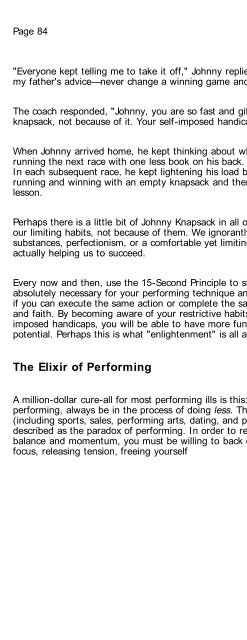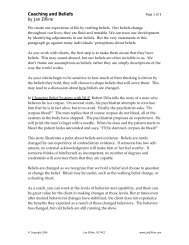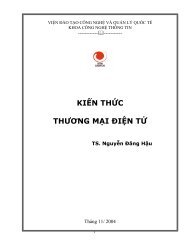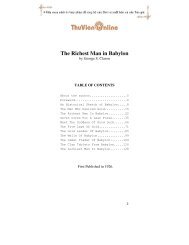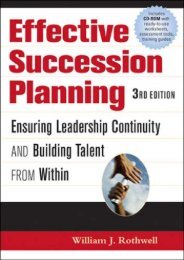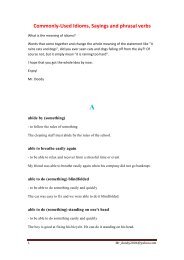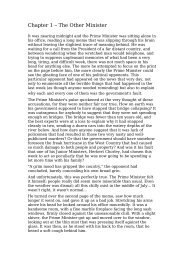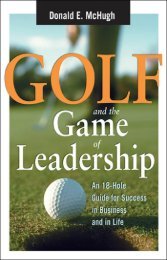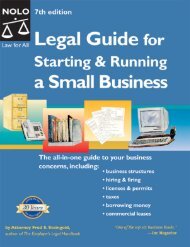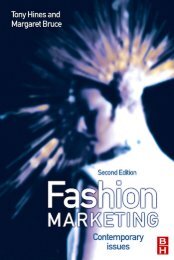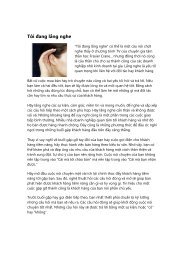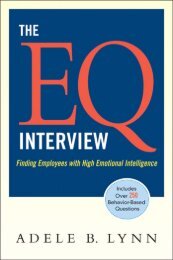1. The 15-Second Principle
1. The 15-Second Principle
1. The 15-Second Principle
You also want an ePaper? Increase the reach of your titles
YUMPU automatically turns print PDFs into web optimized ePapers that Google loves.
Page 84<br />
"Everyone kept telling me to take it off," Johnny replied. "But I always kept winning. I was just following<br />
my father's advice—never change a winning game and always change a losing one."<br />
<strong>The</strong> coach responded, "Johnny, you are so fast and gifted that you have been winning in spite of the<br />
knapsack, not because of it. Your self-imposed handicap finally caught up with you in this national event."<br />
When Johnny arrived home, he kept thinking about what the coach had said. He decided to experiment by<br />
running the next race with one less book on his back. To his amazement, he won the race in record time.<br />
In each subsequent race, he kept lightening his load by taking an additional book out. Finally, he was<br />
running and winning with an empty knapsack and then without the knapsack at all. He had learned his<br />
lesson.<br />
Perhaps there is a little bit of Johnny Knapsack in all of us. Many of us have become successful in spite of<br />
our limiting habits, not because of them. We ignorantly drag extra baggage around (tension, abusive<br />
substances, perfectionism, or a comfortable yet limiting habit), thinking that these extraneous patterns are<br />
actually helping us to succeed.<br />
Every now and then, use the <strong>15</strong>-<strong>Second</strong> <strong>Principle</strong> to stop, look, and listen. Discover which elements are<br />
absolutely necessary for your performing technique and which are unintentional encumbrances. Determine<br />
if you can execute the same action or complete the same assignment with more relaxation, energy, focus,<br />
and faith. By becoming aware of your restrictive habits and by slowly freeing yourself from these selfimposed<br />
handicaps, you will be able to have more fun and freedom as you tap into more of your full<br />
potential. Perhaps this is what "enlightenment" is all about.<br />
<strong>The</strong> Elixir of Performing<br />
A million-dollar cure-all for most performing ills is this: Regardless of how brilliantly or how poorly you are<br />
performing, always be in the process of doing less. This advice can be applied to every area of our lives<br />
(including sports, sales, performing arts, dating, and public speaking). This cure-all "tonic" can also be<br />
described as the paradox of performing. In order to remain in your "flow" or regain your performing<br />
balance and momentum, you must be willing to back off and do less. This would include changing your<br />
focus, releasing tension, freeing yourself


